Review: Frederick Hammersley at L.A. Louver: There’s more than meets the eye
- Share via
If you’re familiar with the paintings of Frederick Hammersley, you’ll be thrilled to see this beautifully installed survey at the Venice gallery L.A. Louver.
And if you’re new to the art of Hammersley (1919-2009), then you’re in for an even bigger treat.
The installation of 98 works that Hammersley made from 1937 to 1991 provides an eye-opening introduction to the two bodies of work for which he is revered: his organic and geometric abstractions.
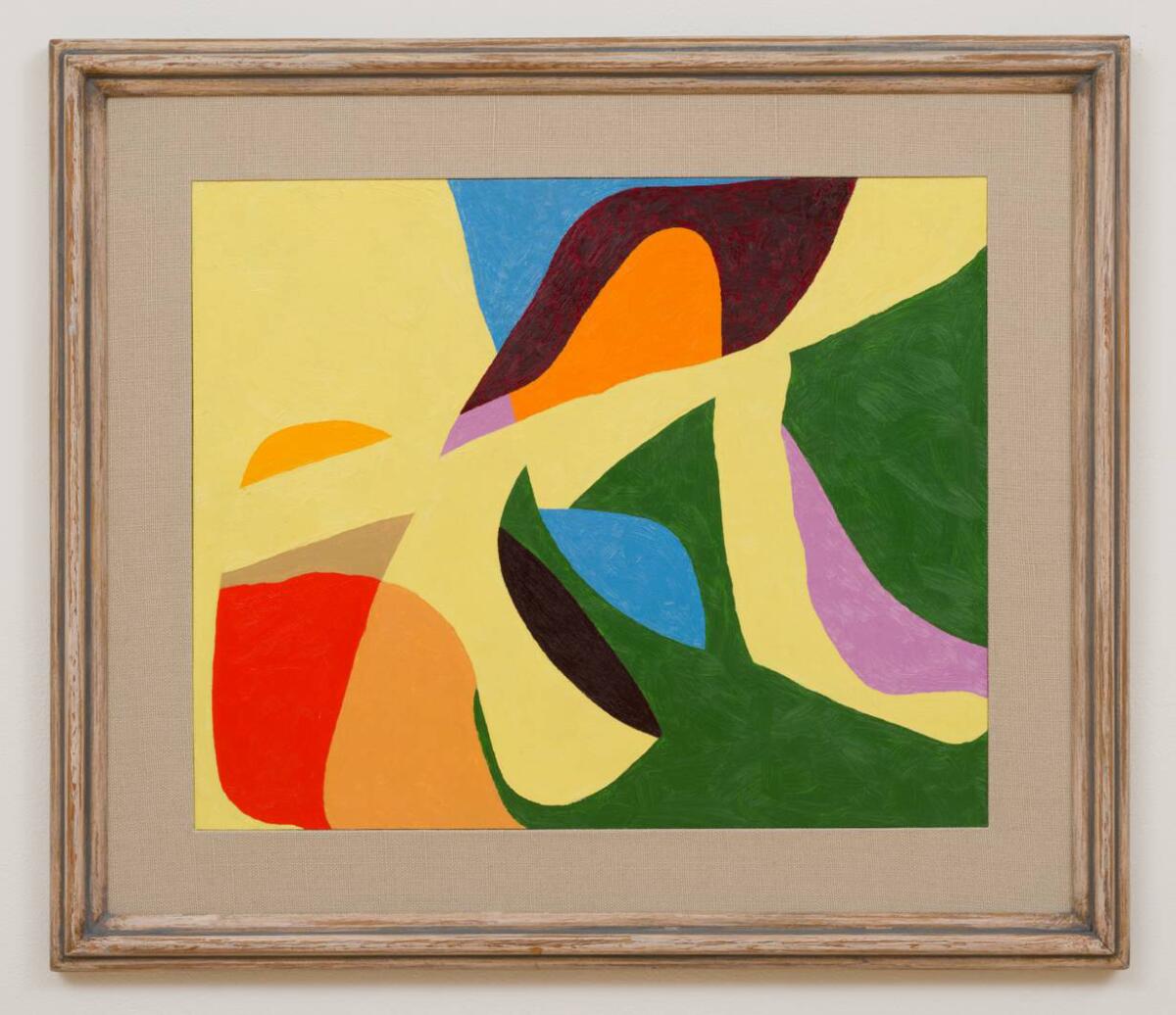
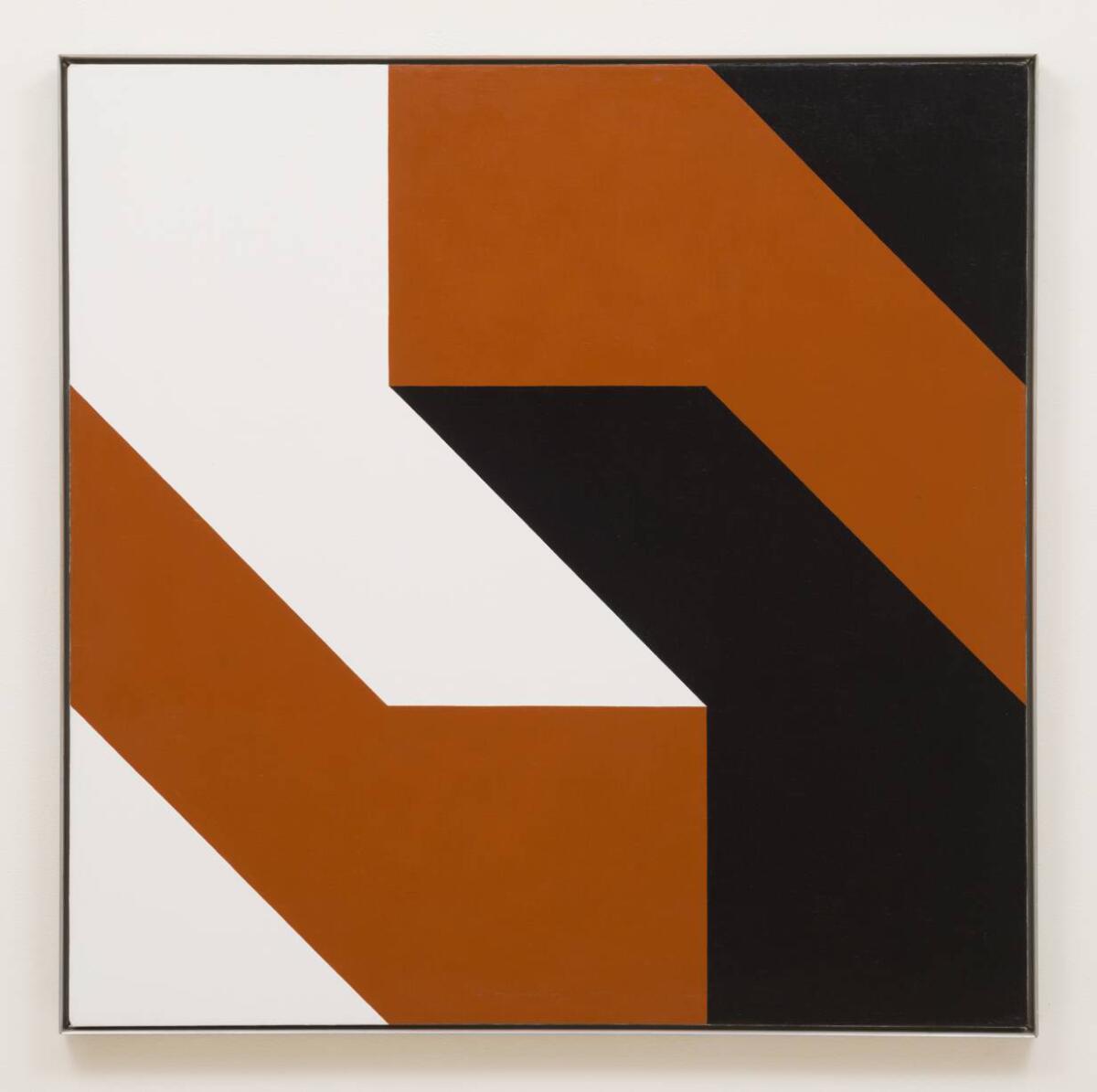
Fantastic examples of each stop you and make you wonder how Hammersley could do so much with so little, transforming snuggly abutted blobs and eccentrically interlocked slabs of supersaturated color into odd compositions abuzz with befuddling possibilities.
Paintings such as “Family Tree” (1991), “Money From Home” (1986), “Altered Ego” (1971) and “Pre Prayed” (1981) make a virtue of illogic while making a case for humility, hard work and the secret pleasures of anonymity. Both meticulous and whimsical, Hammersley’s paintings push past conventional thought patterns to get us to see the world differently.
The show does something similar. Rather than zeroing in on Hammersley’s masterpieces, the exhibition features an abundance of what are usually thought of as minor works: sketches, studies, watercolors, collages, photographs and more.
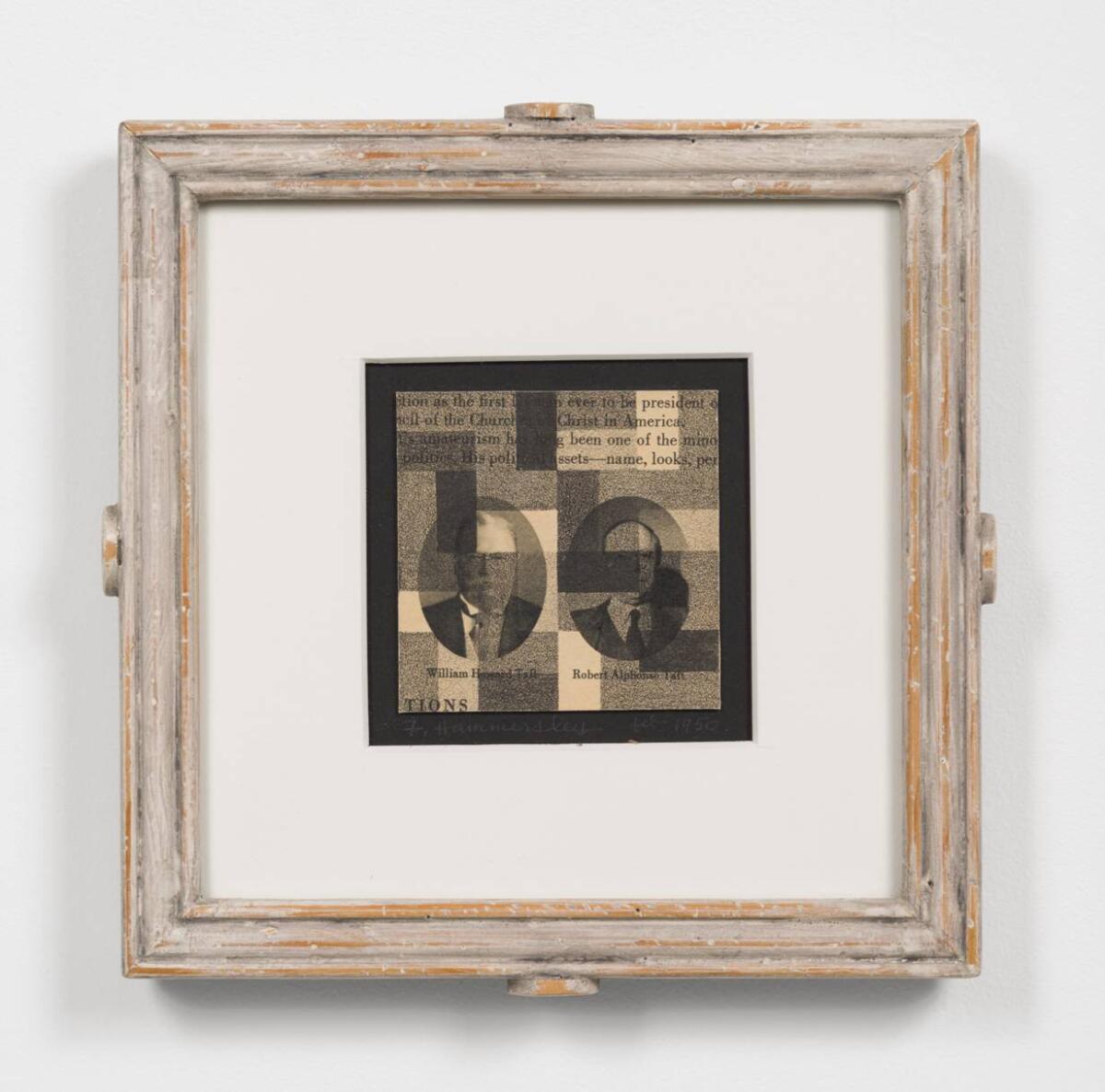
In Hammersley’s hands, such explorations are anything but secondary. They go to the heart of what he does as an artist: to pinpoint, in seemingly incidental details, the silent beauty of the world. The work is magnificently intimate.
In the first gallery, nine tiny lithographs — each measuring 3 inches square, each in its own handmade frame, and all from 1949 or 1950 — combine the dissonance of collage with the harmony of resolved compositions. Hammersley marries disparate elements by finding confluences and building them into spunky patterns.
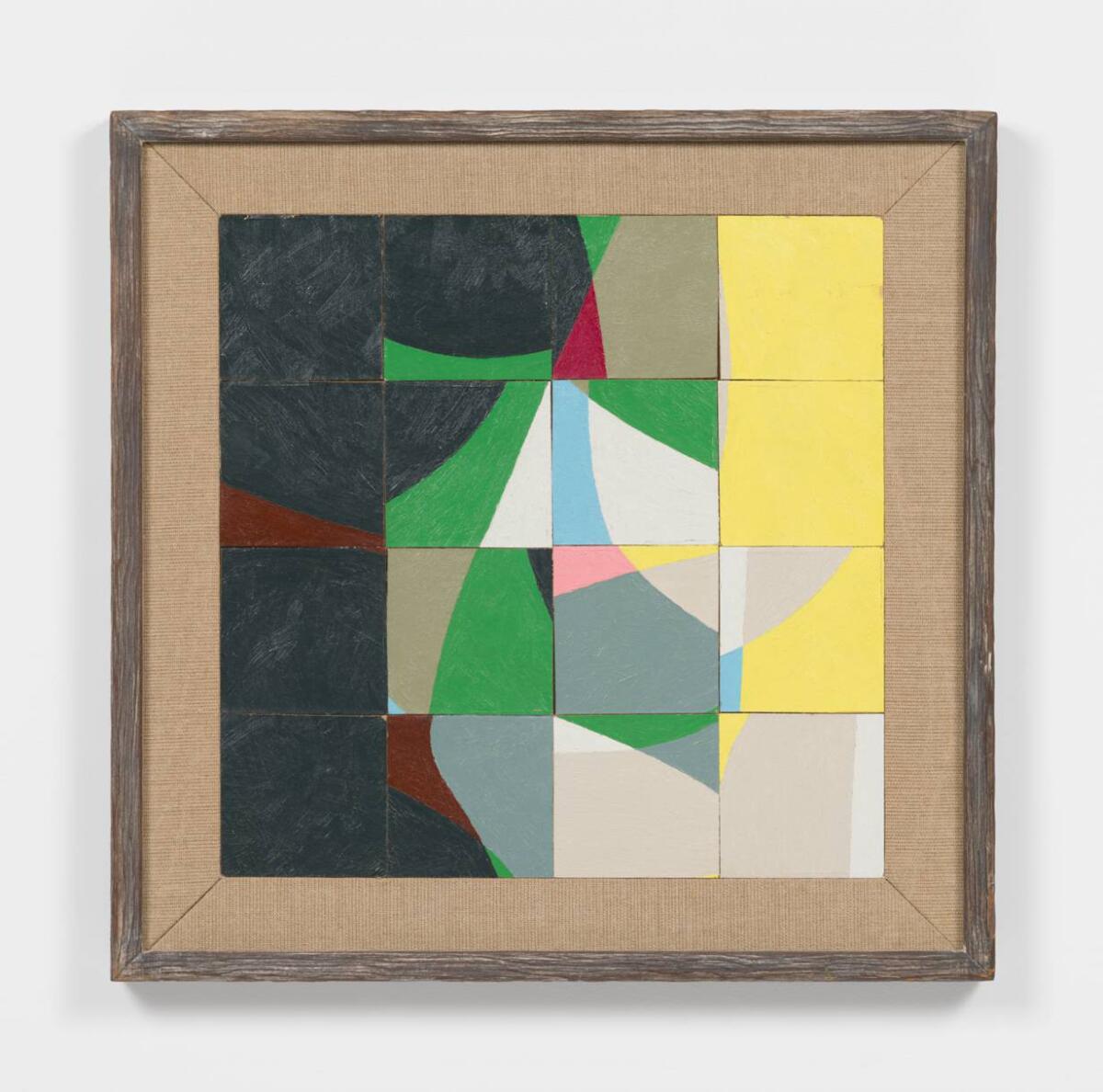
SIGN UP for the free Essential Arts & Culture newsletter »
To make “Cut Up” (1964) and “Bernice” (1965) he sawed a modestly scaled painting into equally sized squares and then rearranged them into a new composition. By collapsing two ways of organizing a painting onto a single surface, Hammersley opens up possibilities not even he anticipated.
The freedom to go beneath superficial appearances and to find deeper structures and rhythms shape all of Hammersley’s works, which include 24 drawings made with a dot-matrix printer in 1969-70, a small number of lithographs from the 1980s, three black-and-white photographs from the 1940s, three from the 1970s and all manner of sketchbook studies.
There’s more to everything than immediately meets the eye. the works’ pleasures are all about how we see and know, not what we think we do.
L.A. Louver, 45 N. Venice Blvd., Los Angeles. Through June 24; closed Sundays and Mondays. (310) 822-4955, www.lalouver.com.
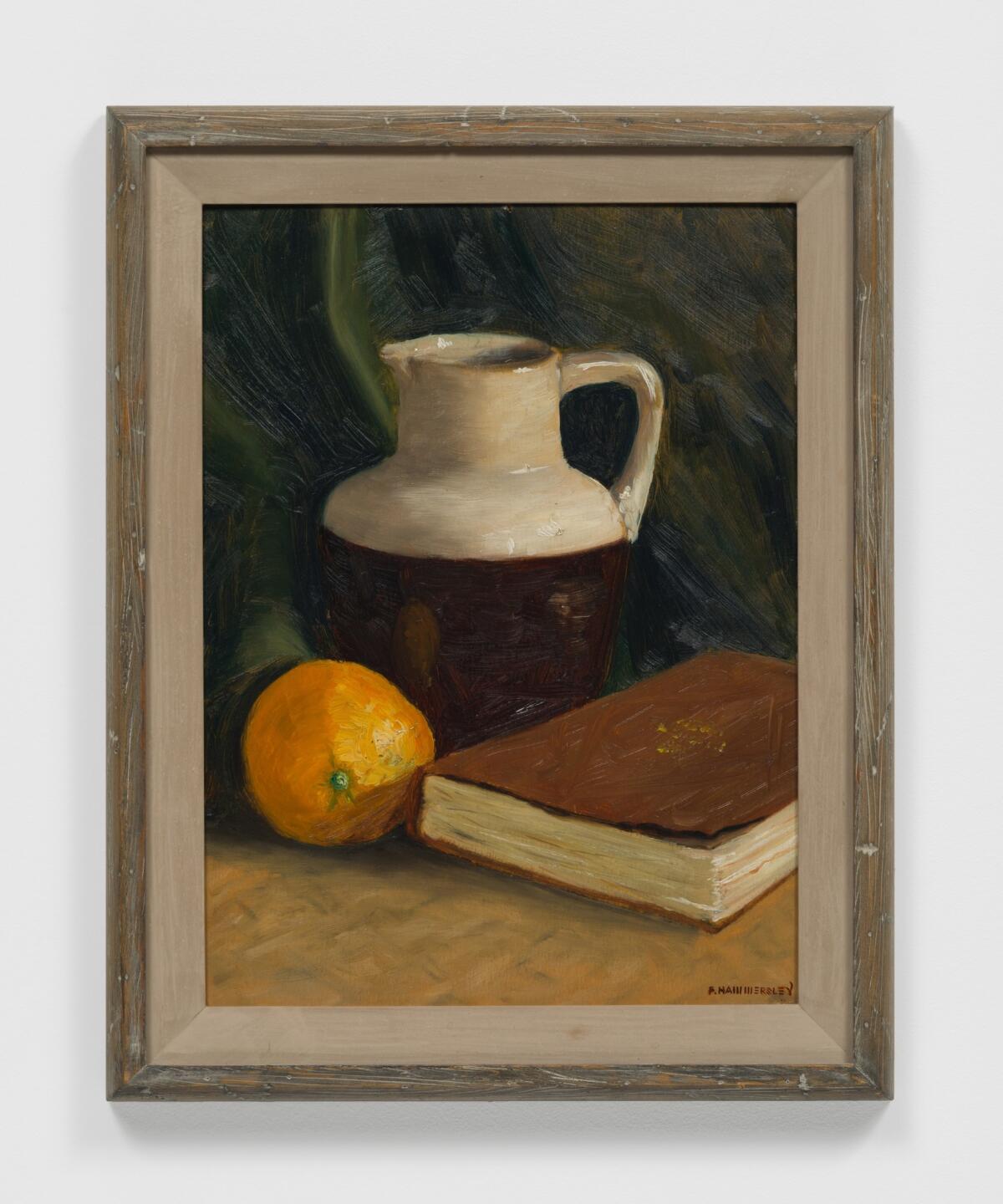
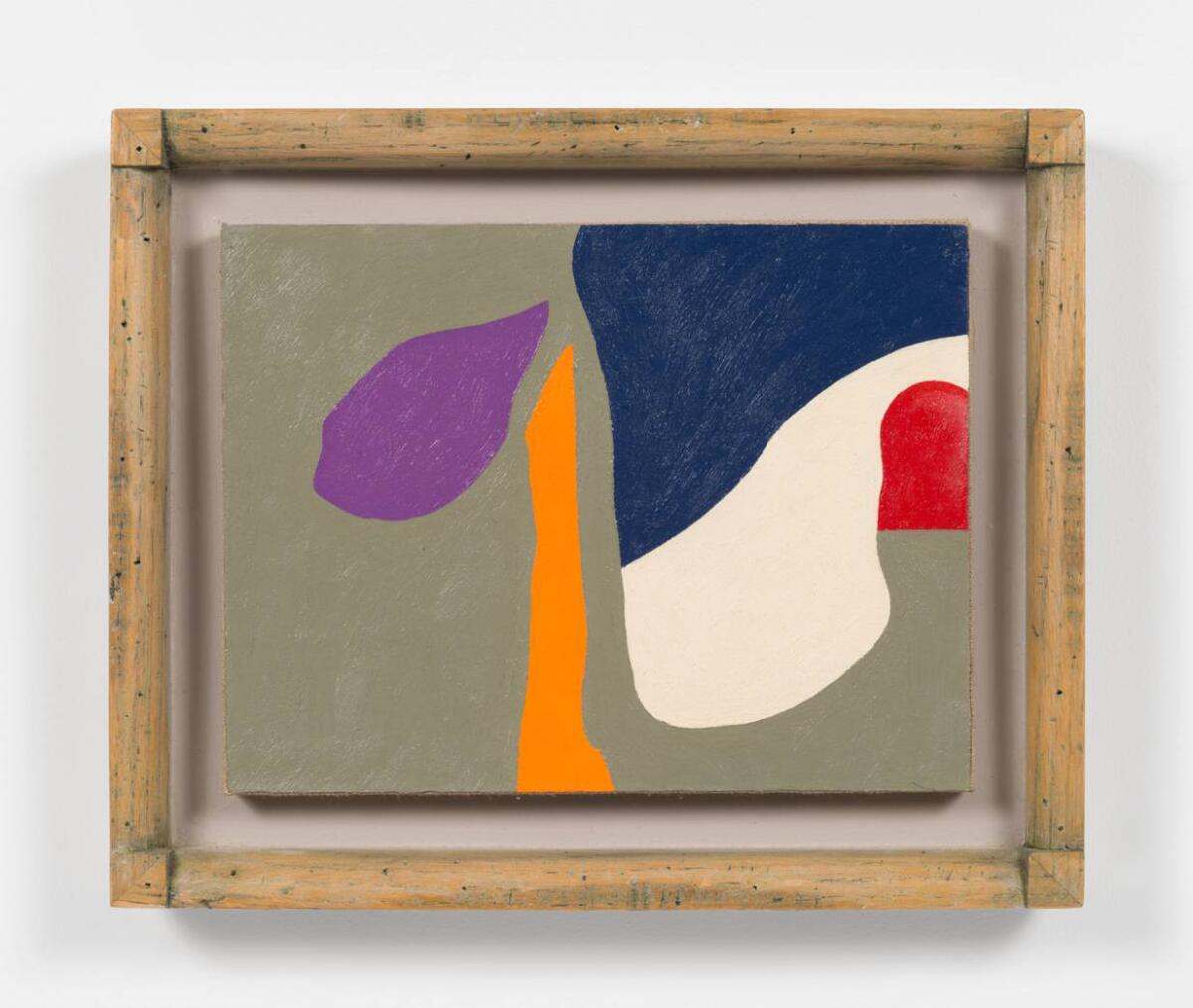
ALSO
At Marc Foxx Gallery, the wild and whimsical world of Matthew Ronay
At Nicodim Gallery, the art of religion: Corny, cynical or otherwise
Meet Robin Bell, the artist who projected protest messages onto Trump's hotel
The biggest entertainment stories
Get our big stories about Hollywood, film, television, music, arts, culture and more right in your inbox as soon as they publish.
You may occasionally receive promotional content from the Los Angeles Times.







